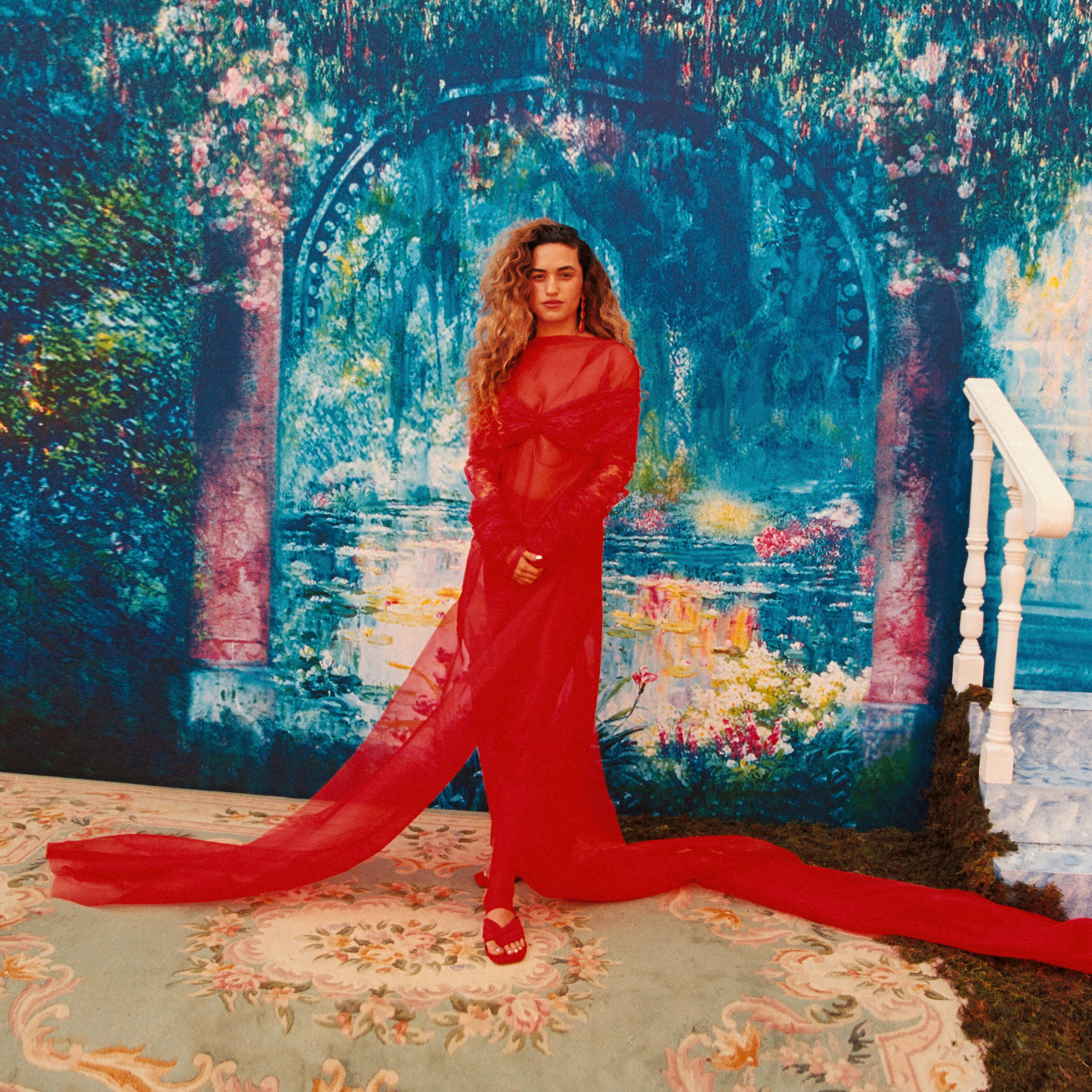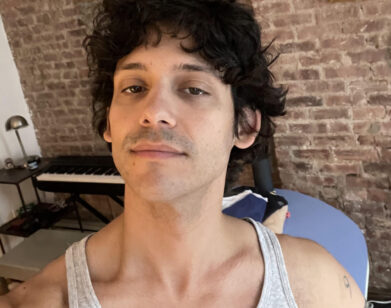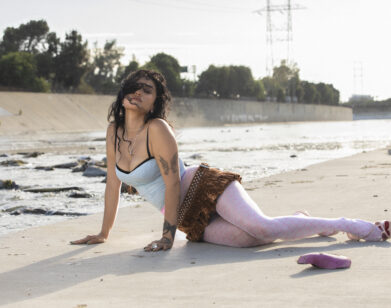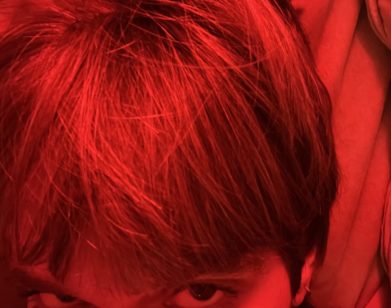Empress Of and Porches Bond Over the Moment When Inspiration Strikes
By now it’s a familiar pattern. Musician falls in love, relationship ends in heartbreak, musician writes break-up album to release the demons, or at least tame them. For Lorely Rodriguez, who records as Empress Of, that all-too familiar cycle of love found and love lost was the spawn of a whirlwind recording process that resulted in her latest album, I’m Your Empress Of. Rodriguez was able to keep her sadness at bay while touring in support of her previous record, Us, and it was only when she returned to Los Angeles and faced the comedown from being on the road that she allowed her pain to consume her. But instead of succumbing to it, she channeled it, unleashing her emotions into her work. Over the span of two months, Rodriguez wrote and recorded nearly every song on the album alone, resulting in a tight and propulsive record that highlights her talent for laying raw emotion on top of addictive dance-pop. Rodriguez recently connected with her friend, the musician Aaron Maine, also known as Porches, to discuss her light-speed recording process, the fleeting nature of inspiration, and the beauty of the Notes app.
———
LORELY RODRIGUEZ: Aaron, oh my god!
AARON MAINE: Oh my god! Congrats, Lorely.
RODRIGUEZ: Thank you so much!
MAINE: You’re in L.A., right?
RODRIGUEZ: Yeah, I’m in L.A.
MAINE: I feel lucky to talk to you now. It’s such a crazy day. I’ve never interviewed anyone, I’m mad nervous, but I listened to the album like six times this morning and wrote down a bunch of questions.
RODRIGUEZ: Oh my god, okay.
MAINE: I don’t know how this goes, but maybe we could just chat. My first question is, how are you feeling today, now that this thing is finally born, and how long have you been waiting to put this out?
RODRIGUEZ: I wrote it in two months, in between touring my last album, and I sort of finished it in November, and then mastered it in December. That was like five months ago, so it’s been pretty quick.
MAINE: That’s pretty fast.
RODRIGUEZ: I shot the album cover in January. But once you turn in the artwork and the mastered record, a label needs four months. That’s always felt archaic to me. I just really wanted to announce the record and put it out a month later. If you ever want to do that, I highly recommend it. It feels incredible, even in today’s state of coronavirus and things shutting down.
MAINE: It feels like such a blessing to have people still releasing stuff in this time where people are probably absorbing media in a way they’ve never really done before. It’s almost more precious than it’s ever been, and also the least precious it’s ever been.
RODRIGUEZ: Yeah.
MAINE: I feel like music is such a gift. I’m glad that you feel good about putting it out now because I think you should. It’s super tight, concept-wise. What I took away was it’s sort of like you coming to your senses in a really sharp way, where you’re like, “Bro, this is how it is. I deserve better, I’m just going to get this out.” What sparked you to make this thing?
RODRIGUEZ: It’s a break-up record. I was incredibly heartbroken when I wrote it. I didn’t have time to feel that on tour, so when I came home, it was immediate. The adrenaline drop was intensified by all these feelings I’d repressed on tour where you’re just always around someone. So when I was home, I was alone, and I felt all the things that I didn’t give myself the chance to feel. It’s 34 minutes of an experience, of where I am as a woman right now, how someone treating you shitty can make you realize what your value is even more.
MAINE: That’s amazing. It’s crazy, as an artist, to share these hyper-personal experiences with the world in such a public way. Whenever I’ve been asked about further details, people are like “expand on the heartbreak.” It’s like, I gave you the details that I felt comfortable sharing. That’s the nature of releasing something. But it’s cool to make a statement like that and to frame it in a way where it’s like, “That’s just how I was feeling right then, I had to work through this shit,” instead of some longer arc. It feels very direct.
RODRIGUEZ: Directness is definitely something I learned on this album. I feel really proud of myself because a lot of the lyrics are direct in a non-poetic way. That’s a hard thing to do. Where is the line between cheesy and vulnerable?
MAINE: What is your process for writing these songs?
RODRIGUEZ: I was on tour while making a lot of these beats, so a lot was made on my laptop. I came home and figured out what type of song I was going to write over them. Especially on “What’s the Point,” you can hear the intensity of constantly moving from tour. Production-wise, it sounds like some new shit for me. I’ve never really used autotune heavily as a singer, and the way I did it on that song, and pitching the vocals and the structure of the song, it’s not verse, pre-chorus, chorus, bridge. It’s a really simple song, but there are all these complex feelings and soundscapes happening. One of my favorite parts of the record, production-wise, is that on “What’s the Point,” there’s four beats of nothing, there’s silence. I’ve never done that on a record before.
MAINE: That’s sick.
RODRIGUEZ: Yeah, there’s four beats of just silence before the bridge comes. I think putting silence on a record is one of the boldest things you can do because it takes a lot of confidence to know that the next part is going to be worth listening to.
MAINE: Totally. I can imagine the crowd, that moment when playing it live, everyone’s going to be like, “Oh, shit,” waiting for it to drop. It’s going to be so good when that happens.
RODRIGUEZ: Exactly. It’s like an anti-drop.
MAINE: I wanted to talk about the pallet, because it’s super tight. I feel like there’s maybe four main, go-to sounds?
RODRIGUEZ: One hundred percent. A really big thing on the sound of this record is being broken. I brought that out with distorting vocals, distorting drums, distorting effects and delays. I think making the record sound broken helps all the lyrics on the record.
MAINE: It’s mad spacious. Everything sits so nice, the beats are so fat on the bottom, and then there’s organic sounds on top.
RODRIGUEZ: That’s always been my thing. I want vocals to be almost a little too loud because lyrics are the most important thing on my record. Having every word be coherent is important to me.
MAINE: Did you write any of the lyrics on tour or were those all when you were back making the record?
RODRIGUEZ: When I was back in my house. The adrenaline drop, being back home, driving around all these things that reminded me of someone, that feeling.
MAINE: It’s amazing that you just launched into the record. That’s one way to deal with the sort of depression that might ensue when you get back from tour and don’t really know what to do or how to connect.
RODRIGUEZ: Another big thing I learned is that creativity is a true gift. It’s something you should nurture. We always want to be inspired, and sometimes you have to work on a record when you’re not inspired. On this record, I came home and I almost felt like I had a relationship with a higher presence. All this creativity was coming to me, and all these songs were coming to me, and that was the one moment where I was like, this is an actual gift that I’ve been given, and I need to nurture and respect it.
MAINE: That’s really beautiful.
RODRIGUEZ: We’re blessed enough to be musicians as our career, and sometimes you’re not inspired, and you have to keep writing, and that’s really hard. At that point in my life, I hit a level of inspiration and creativity that was new to me.
MAINE: It’s so true. As insane and selfish as it feels sometimes to be making music, it’s such a blessing, to feel a calling to make something. Your mom is on the record, right?
RODRIGUEZ: Yeah, my mom’s on it. I’m really inspired by her experience as an immigrant and a mother and a woman. I knew I wanted her on the track, “I’m Your Empress Of,” but I didn’t expect her to say all the incredible things she said, like, “Love is the language of the heart, the language that everybody can understand.” And I’m just like, “What?” I didn’t prompt her to say that.
MAINE: It’s so special to just lay her into the record. If you weren’t sharing enough of your world already, you bring in this woman that created you. On “Void,”everything cuts out for a second, and it cuts back to her talking?
RODRIGUEZ: Everything cuts out and then she goes, “You got to make yourself the woman that nobody’s going to mistreat.” The song’s about giving up too much to someone and not having anything left and being like, “Who am I?” Her response is, “You better make yourself the woman that nobody’s going to mistreat!” She’s a G.
MAINE: Do you learn about yourself while you’re making a song, or after you make a song? For this one it sounded like you learned about yourself and then made songs about it. Where does the perspective and the examination happen?
RODRIGUEZ: I don’t fully understand how I’m feeling until I write a song, and then I listen to it and I’m like, “Oh.” Songwriting exposes the layers that I suppress, as a person who’s really bad at talking about their feelings in life.
MAINE: Yeah, I feel that.
RODRIGUEZ: I learned a lot about my behavior. Songs like, “Not the One,” that song is about a rebound. Hooking up with someone just to fill the space. You’re saying the same things you said to someone else to them. Writing that song, I felt like I understood what I was making people out to be, how I was going into new relationships and making people into something that they weren’t.
MAINE: Do you write with a piece of paper, or do you loop the song and sing a bunch of stuff?
RODRIGUEZ: I used to write with paper, and now I write with the Notes app. I love Notes, because you can share them with other people, and when you edit one, they’ll get it. I often share my album notes with close friends or my manager. I like making music like that.
MAINE: We’ve got to start a shared note.
RODRIGUEZ: I know! I think Dev [Hynes] got me into that. I used to write lyrics on paper, and then I lost some journals and that’s the worst feeling. Losing lyrics you’ve edited, and scratched out and got coffee marks on, I don’t want to go through that again.
MAINE: Do you send demos to your friends? You said you share notes, but do you get an idea you’re excited about and fire it off to like five people? Or do you keep it close?
RODRIGUEZ: I always send it to people. I love getting stuff out into the world and getting responses from people.
MAINE: Same. The second I shut the computer I want an immediate response. Do people’s reactions ever fuck with you?
RODRIGUEZ: They used to, yeah. The worst is not getting a response. You think you’re Frank Ocean with a song you wrote. You’re like, “Oh my god, I’m John Lennon.” And then you send the song, and they don’t write you back for two days, and you’re like, “Should I quit music?”
MAINE: They’re like, “Fun!” You’re like, “I’m going to jump!”
RODRIGUEZ: Yeah, I used to do that. It depends on the person. Sometimes I’ll get a little crazy and be like, “It’s been an hour!”







